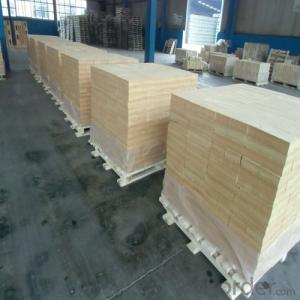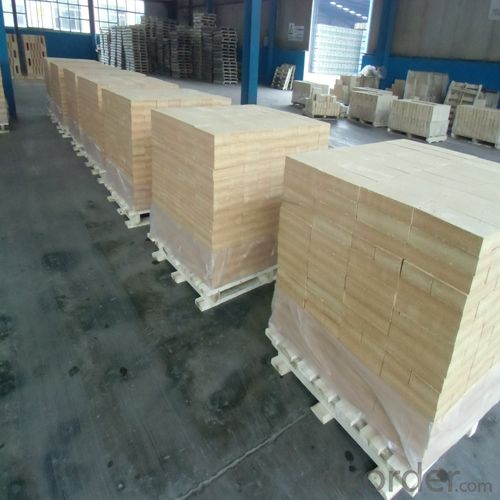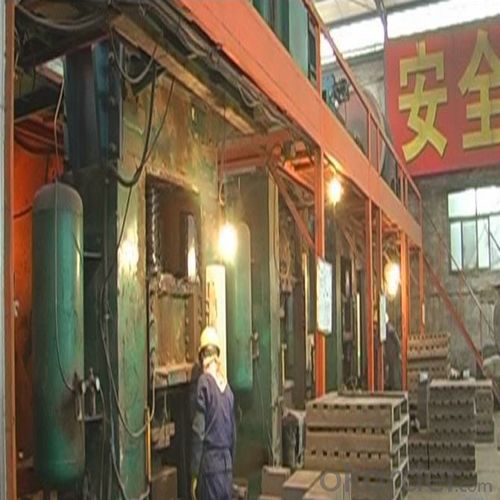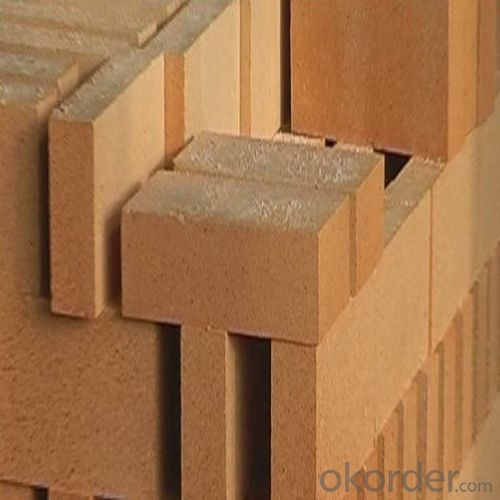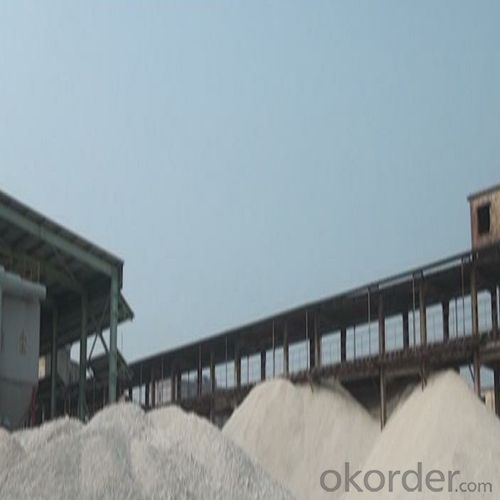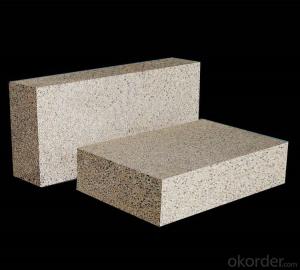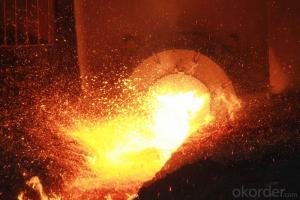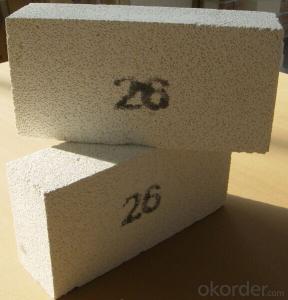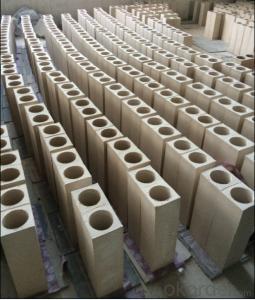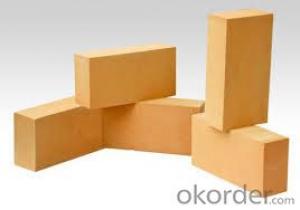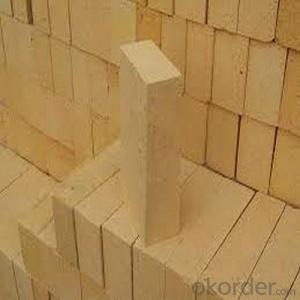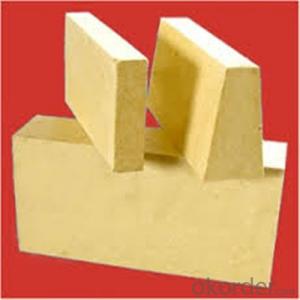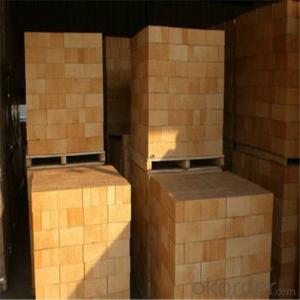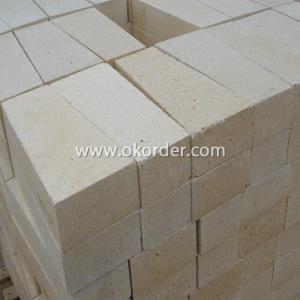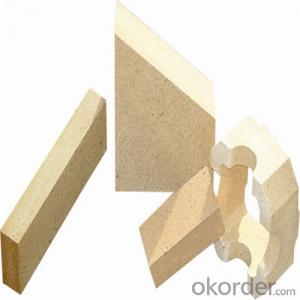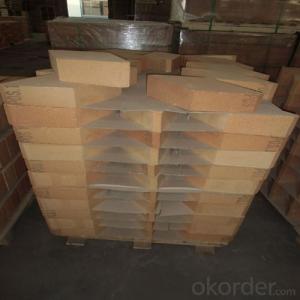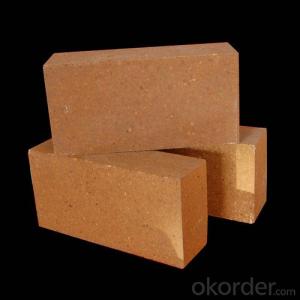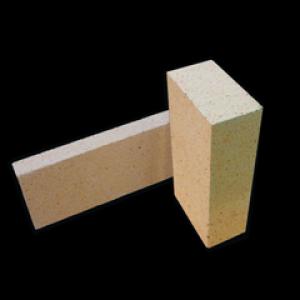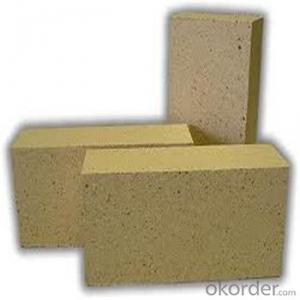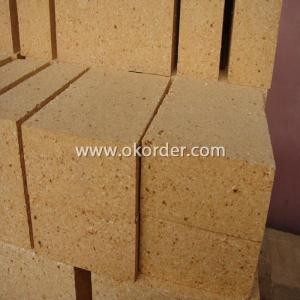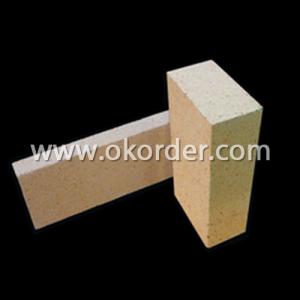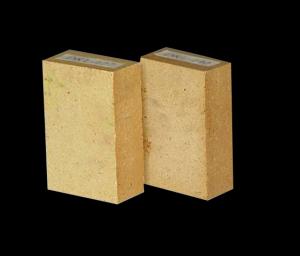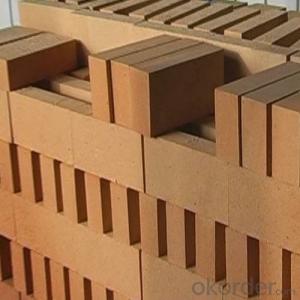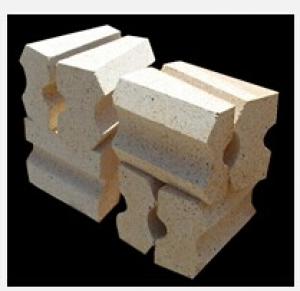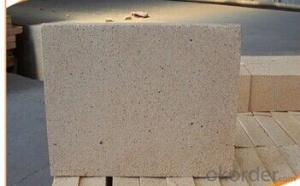Fireclay Brick RN40 - Hot Sale
- Loading Port:
- China Main Port
- Payment Terms:
- TT OR LC
- Min Order Qty:
- -
- Supply Capability:
- 500000 pc/month
OKorder Service Pledge
OKorder Financial Service
You Might Also Like
General Information of Fireclay brick
Our corporation producesa comprehensive range of Fireclay bricks, with 30% to 55% alumina content, allof these bricks exhibit excellent performance.
Our Fireclaybricks are the final result of blending excellent fused alumina and silicon asthe main raw materials with cutting-edge technology, adding superfine powder,after mixing, drying, forming, in the high temperature shuttle kiln. We ensureyou that the Fireclay Bricks made by us possess high quality standard and havegone through all the complicated quality control parameters. Their durabilityand strength adds life to the structure and they have the capacity of bearinghigh temperature.
Feature of Fireclay Brick
Resistant tothermal shock, abrasion, chemical attack
High ability foranti-abrasion during work
Low shrinkagedegree under high temperature so as to maintaining integrity of the furnacelining
Low apparentporosity, and low Fe2O3 content to reduce the carbondeposit in the blowhole and avoid the bricks broken in case of expansion
Applications of Fireclay Brick
Fireclay brick is mainlyused in the part of throat, stack, hearth, bottom for blast furnace and thestack for a big blast furnace.
1. Carbon bakedfurnaces in the alumina industry
2. Preheat zonesand cyclones of rotary cement kilns
3. Insulation forglass tanks
4. Coke ovens
5. Blast furnaces
6. Reheatingfurnaces
7. Suspended roofs
8. Lime kilns
9. Chimney
Technical Data of Fireclay Brick RN40 | ||
Physical Properties: |
|
|
Refractoriness | ℃ | 1730 |
Permanent Linear Change(1350℃×2h)% | % | 0~-0.3 |
Apparent Porosity, % | % | ≤24 |
Cold Crushing Strength | Mpa | ≥28 |
Refractoriness Under Load (T0.6) | ℃ | 1430 |
Thermal Expansion at 1000℃, | % | 0.6 |
Density | g/cm3 | ≥2.15 |
Chemical Analysis: |
|
|
Al2O3 | % | ≥40 |
Fe2O3 | % | ≤2.0 |
Note: | ||
- Q: What is the role of refractory brick, whether is there any books to introduce refractory bricks
- Fire resistant, flame retardant, used for building stove and firewall,
- Q: What are the weak points of clay bricks?
- In the temperature range of 0~1000 DEG C, the clay brick volume increases with temperature uniform expansion, linear expansion curve approximates a straight line, the line expansion rate is 0.6%~0.7%, about half of the brick. When the temperature reaches 1200 degrees Celsius and then continues to heat up, the volume will begin to shrink from the maximum expansion. The residual shrinkage of clay brick results in the cracking of masonry joints, which is a major drawback of clay bricks. When the temperature is above 1200 degrees, the low melting point of the clay brick gradually melts because the particles are very close to each other due to surface tension, resulting in volume shrinkage.
- Q: Whether yellow dextrin is used in refractory bricks?
- use professional mortar, do not use yellow dextrin
- Q: What kind of material is good to be laid on the kiln car, refractory brick?
- Ceramic fiber blanket
- Q: In tunnel kiln, what is the meaning of refractory proportion 2.0?
- The proportion of refractory bricks is related to the density.
- Q: What is the meaning of special shaped refractory brick material n-2b?
- In fact, there are many kinds of refractory bricks, titanium, high alumina refractory brick, after drying. The mineral composition of the clay brick is mainly kaolinite (Al2O3·2SiO2·2H2O) and 6% ~ 7% impurities (K, etc.). Clay refractory bricks are iron oxide sintered by 50% soft clay and 50% hard clay clinker ingredients according to a certain granularity requirements under the high temperature of 1300 ~ 1400 degrees), perlite
- Q: What are the differences between sintered bricks and refractory bricks?
- Easily weathered. There is no obvious difference in the usage between fired pavingbricks and refractory bricks; sintered bricks are generally used for residential road and landscape engineering, they do not fade; refractory bricks are used for all kinds of kiln constructions in plant: It is not anti-freeze (when the temperature is below the zero degree, the brick will easily "blister" in the saturated state), the reasons are high compressive strength and high temperature zone' heat insulation and so on. Fired pavingbrick is a powerful vacuum extrusion type. Fire suppression road brick is high temperature furnace brick, which is not suitable to be used as road brick. Its characteristics are: Wear resistance and freeze-thaw resistance (the anti freeze-thaw cycle of brick is more than 50 times in saturated state), non weathering, sidewalks, short service life. Sintered brick belongs to the building material, refractory brick belongs to the industrial kiln material, which is easy to moss
- Q: What is the use of refractory bricks
- Silica?brick, common brick, special type brick. For example, fireclay bricks, high alumina brick, fused brick (fused cast brick), unfired brick, refractory materials at high temperature and can withstand a variety of physical and chemical changes and mechanical action with certain shape and size. According to the preparation process, the method can be divided into burnt brick. Can be used as construction furnaces and various thermal equipment of high temperature building materials and construction materials; according to the shape and size, it can be divided into standard bricks, refractory heat insulating bricks, magnesia brick etc.
- Q: how to test the high alumina refractory brick mixed alumina?
- The first thing before producing bricks is to test whether the aluminum content reaches the standards, general testing on raw materials. Second: the shaped high aluminum brick will be tested in some professional equipment, you can know it from the professional inspection departments.
- Q: does all the refractory refer to refractory bricks when making steel?
- chamotte, castable refractory, etc are shapeless refractory, above are all ferrous metallurgy auxiliary
Send your message to us
Fireclay Brick RN40 - Hot Sale
- Loading Port:
- China Main Port
- Payment Terms:
- TT OR LC
- Min Order Qty:
- -
- Supply Capability:
- 500000 pc/month
OKorder Service Pledge
OKorder Financial Service
Similar products
Hot products
Hot Searches
Related keywords
